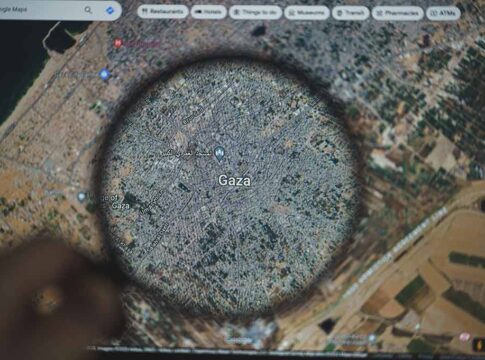The humanitarian crisis in Gaza has reached a catastrophic point as the World Health Organization warns that child mortality rates are rapidly increasing. The WHO has repeatedly called for unimpeded humanitarian access while emphasizing that these deaths are entirely preventable with proper intervention. What immediate actions could combat the WHO’s warning?
Escalating Crisis Threatens Thousands of Children
The World Health Organization has reported that 57 children have already died from malnutrition in Gaza, with projections indicating 71,000 more children under five are at imminent risk. Three-quarters of Gaza’s 2.1 million population are now experiencing “Emergency” or “Catastrophic” levels of food deprivation, according to the Integrated Food Security Phase Classification partnership.
WHO Director-General Dr. Tedros Adhanom Ghebreyesus has emphasized the urgency of the situation, stating, “We do not need to wait for a declaration of famine in Gaza to know that people are already starving, sick and dying, while food and medicines are minutes away across the border.” The blockade implemented on March 2, 2025, has created a critical barrier to essential supplies, leaving aid organizations unable to meet even basic humanitarian needs.
#Gaza: Over 50 child malnutrition deaths amid aid blockade; entire generation will be ‘permanently affected’ – @WHO https://t.co/RjF17MdPvX
— UN News (@UN_News_Centre) May 13, 2025
Humanitarian Resources Bottlenecked at Borders
WHO currently has 31 aid trucks stalled in Egypt and additional supplies in the West Bank awaiting permission to enter Gaza. Dr. Rik Peeperkorn, WHO’s representative for the occupied Palestinian territory, described the current aid efforts as “a fraction of the urgent need,” highlighting the gap between available resources and distribution capabilities.
Save the Children reports that over 93% of children in Gaza are now at critical risk of famine, creating a generation-defining humanitarian emergency. The cycle of malnutrition and disease is particularly devastating for infants and young children, whose developmental needs are compromised when malnourished mothers struggle to produce nutritious milk in an environment where clean water is increasingly scarce.
I fear that you have lost interest about Gaza 🇵🇸
Are you still here? ;((If you see still here , comment with 🇵🇸 , 🍉 pic.twitter.com/qIDVzZzvS8
— Muhammad in Gaza🇵🇸 (@7MohammedKhaled) May 28, 2025
Long-term Consequences Beyond Immediate Crisis
Medical experts warn that even children who survive the immediate crisis face long-term consequences, including stunted growth, impaired cognitive development, and chronic health issues. Dr. Peeperkorn emphasized this concern, stating, “Without enough nutritious food, clean water, access to health care, an entire generation will be permanently affected.”
Attacks on healthcare facilities have further compromised medical response capabilities, with Israeli airstrikes on facilities like the Nasser Medical Complex straining already limited resources. WHO officials have called for the protection of healthcare infrastructure, an end to the blockade, the release of hostages, and a ceasefire to establish conditions for lasting peace and recovery in the region.

